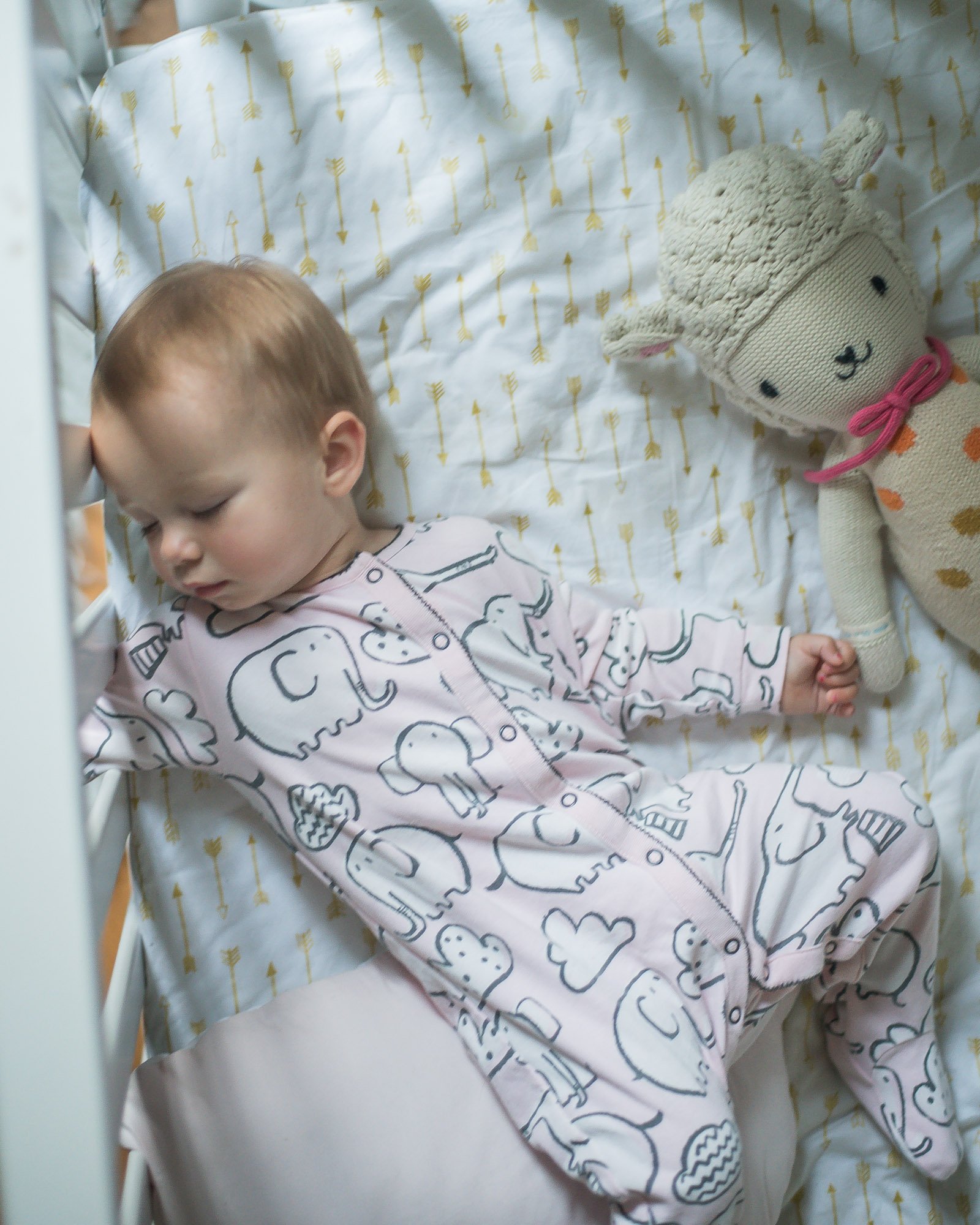Feature: Lindsay Lewis on Infant Sleep
 I’m so excited to be guest blogging on Wildrosebuds about my favourite topic – infant sleep!There is a lot of think about and prepare for when you’re expecting a baby…the pregnancy, the birth, breastfeeding or bottle feeding, strollers, car seats, etc. But parents rarely give a lot of early attention to one area that many parents struggle with—how will I get my baby to sleep.Many parents have experienced the frustration of their baby not sleeping well and have tried many strategies. I’m a mother of three and I’ve been there. But I’ve found what works and I love sharing my knowledge with families.Hopefully, you will take away a few tips from this post that will get your little one off to the best start possible with their sleep habits. I’ll also answer a couple of questions that were submitted by readers of Wildrosebuds.If you have a newborn baby or are expecting one, you will soon come to realize that babies do a lot of eating and sleeping. With some babies, this continues for weeks and months. Other babies will struggle with their sleep from early on. The good news is that there are few simple things you can do to help your baby develop healthy sleep habits:
I’m so excited to be guest blogging on Wildrosebuds about my favourite topic – infant sleep!There is a lot of think about and prepare for when you’re expecting a baby…the pregnancy, the birth, breastfeeding or bottle feeding, strollers, car seats, etc. But parents rarely give a lot of early attention to one area that many parents struggle with—how will I get my baby to sleep.Many parents have experienced the frustration of their baby not sleeping well and have tried many strategies. I’m a mother of three and I’ve been there. But I’ve found what works and I love sharing my knowledge with families.Hopefully, you will take away a few tips from this post that will get your little one off to the best start possible with their sleep habits. I’ll also answer a couple of questions that were submitted by readers of Wildrosebuds.If you have a newborn baby or are expecting one, you will soon come to realize that babies do a lot of eating and sleeping. With some babies, this continues for weeks and months. Other babies will struggle with their sleep from early on. The good news is that there are few simple things you can do to help your baby develop healthy sleep habits:
- Establish a good bedtime routine. Consistency and predictability are very important to babies. Establishing a bedtime routine in the first few weeks will help your baby organize their days and nights.
- Pay attention to sleepy cues. Most newborns (up to three months old) can only handle being awake for 45 to 90 minutes before they will need to take another nap. Newborns need four to five naps per day, and ideally, these naps should be between one to three hours. When you notice your baby is showing signs of being tired (rubbing eyes, looking away, yawning), put them down before they become overtired.
- Focus on getting baby to take full feeds during the day. You can do this by following an EAT, PLAY, SLEEP pattern.
- Understand that developing self-soothing strategies is a crucial element for teaching children to go to sleep and stay asleep. You can help your baby develop these strategies by trying to put them down for a nap awake so they can practice. But remember, at this stage, it is more important that your baby is getting adequate sleep, than going to sleep independently.
The tips above aren’t instant solutions, but if you follow them your baby should move naturally towards the successful development of healthy sleep habits that they will carry throughout their childhoodThe first reader question was about tips for keeping her one-year old on her routine while regularly shifting back and forth between two environments.The most important piece of advice I can share is to ensure your daughter’s nap and bedtime routine are consistent in both environments. So, follow her exact routine (e.g. bath, PJs, books, bed) no matter where she is going to sleep. Also, make sure her sleep environment is as similar as possible – dark room, crib, white noise (if she uses it), etc. And lastly, if your daughter has a favourite comfort item, make sure she always has it with her for sleep time. A lovey or blankie will go a long way in helping her feel safe and secure in both environments.The second reader has tried several methods for helping her son sleep, and isn’t a fan of cry it out (CIO), but continues to face challenges with getting him to settle in a timely manner.Firstly, I know CIO works great for some families, but it also wasn’t a method that I was comfortable trying with my children. As mentioned in the above tips, it is important to establish routines, optimize baby’s schedule, and choose the best method that will minimize crying and teach baby to learn how to fall asleep independently.If your baby is taking hours to settle at night, I suspect that your child is dependent on a “prop”, such as breastfeeding, bottles, soothers, rocking, etc, to fall asleep. The “prop” must be eliminated to establish healthy sleep habits.The first few nights could be rough. Remember, your baby is learning something brand new. But once baby learns to fall asleep on their own – which can happen surprisingly quick – the crying goes away and healthy sleep habits begin. Good luck!My passion is helping parents by developing customized plans for solving child sleep problems. If you have any questions about what you've just read, please feel free to get in touch!